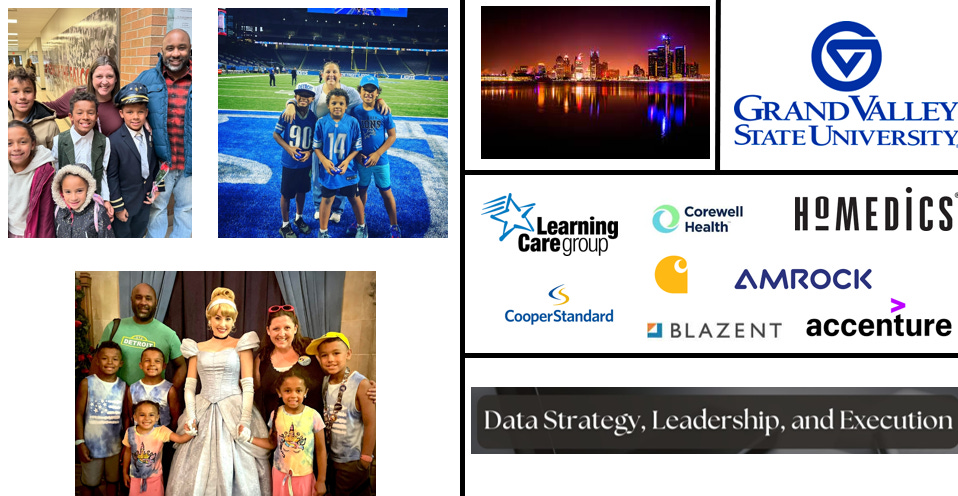Over the past month, I’ve made a slight pivot with some of my side projects. An overwhelming number of people have reached out about some of the challenges they’re facing in finding a job.
I hosted a webinar with a group of people who contacted me. It was fun putting together the materials and presenting what I’m hearing from people and what I think they can do to improve their odds at getting a job.
Resume Buzzwords
Because people send me their resumes, I have an opportunity to make observations about how data job seekers are presenting themselves. I looked at one resume and used it for a mental model of what others would look like. It turns out I was right. Here are the words I’m seeing in the vast majority of resumes:
Pipelines, scripts, workflows, models.
What did this lead to from an outcome perspective?
Efficiency, insights
If I believe all of these resumes, I would think we have thousands of efficient and insightful organizations.
What’s Different?
The challenge I give to people is, if your resume looks like everyone else’s, then what differentiates you? What’s different about you compared to the hundreds of people looking for the same jobs? It can’t be pipelines and workflows.
Here’s a slide that I use for presentations when I talk about myself. It’s a quick one-pager that offers many speaking points.
Combining all of the elements on this slide offers a glimpse into how I’m different.
Family + Hometown + College + Degree + Companies and Experiences + Focus Areas
If I combine all of these, they form an introduction to myself that I’m sure no one else in this world has. I’m not saying this makes me better than anyone, but it differentiates me.
I posted a job, and my LinkedIn follower count increased by 500 in one day. Which I’m guessing means that at least 500 people applied for the job. You aren’t going to standout in a field of 500+ applicants and get a job with just pipelines and workflows.
You have to share why you’re different across multiple platforms. Your resume should connect with a portfolio, which connects to your LinkedIn profile, which highlights posts where you’ve described what you’ve done and what you’re working on. If you have a cover letter, it should also connect to these things.
Lessons in E-commerce and Restaurants
From e-commerce, we know that the more time visitors spend on a website, the higher the chance of converting them into customers or achieving other desired actions.
Also, if somebody goes to a restaurant for the first time and has a flawless experience, the likelihood of them doing a second visit is about 40%. The second time a customer comes and has a flawless experience, the likelihood of a third visit is still about 42%. The third time they come, the likelihood of a fourth visit is over 70%. Therefore, they have to market to three visits, not one.
Translating this to data jobs, the more opportunities you give HR recruiters and hiring managers to learn about you, the more likely you will stand out to get the phone screen. When I review resumes of candidates, the first thing I do is go to their LinkedIn page. When I see no picture, no “About Me” section, and no posts, I’m off to the next person. If I see all those things filled out, I’m more inclined to give them a second look.
If someone wanted to know about you, how long would it take to provide information via your resume, social presence (YouTube, podcasts, newsletters, etc.), portfolio, and LinkedIn? Would it take them minutes, hours, days, or weeks? My hypothesis is that the more you put out there and the more options you have for someone to learn about you and establish your expertise, the higher the likelihood you can get to the next stage in the job search process.
Goal of the Resume
Ultimately, the resume's goal is to get people interested enough to learn about you to get to a phone screen. The goal is to get a phone screen and allow someone to speak with you. Once you get a phone screen, the job is yours to lose. Many job seekers I speak with are not able to get a phone screen. This indicates they’re not sticking out in a crowded field.
Referrals
I recognize that getting a referral or recommendation also has weight. However, you still have to differentiate yourself in a less crowded field. Imagine they shrunk the candidate pool from 500 resumes to 100 resumes with referrals and recommendations. You still have to show how you stack up against the other 99 people.
I’ll probably do another webinar in a few weeks to continue sharing what I’m hearing and ways data job seekers can stand out. Stay tuned.





Awesome read. Wanna do a lunch and learn sometime about this topic?